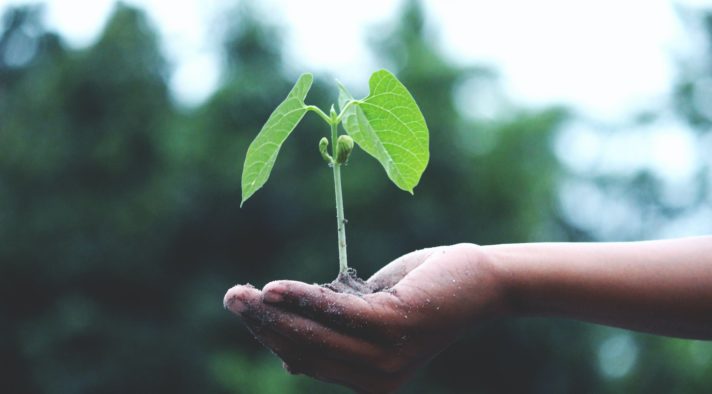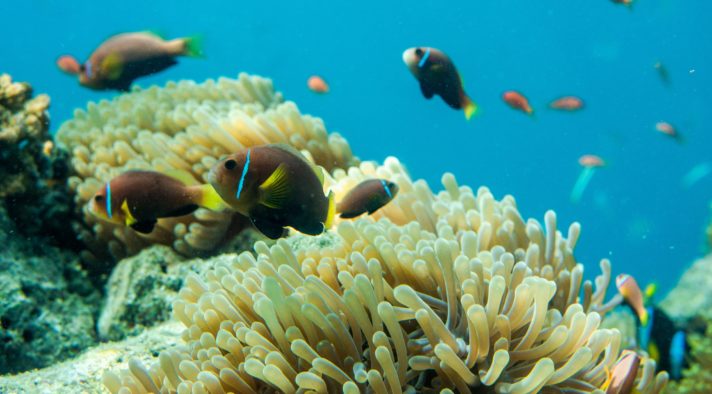The region of Navarra, under the leadership of the Department of Rural Development and Environment, has fostered in recent years a large deployment of actions for climate adaptation, such as the Active for Climate initiative. Likewise, since 2016 Navarra has been working on the alignment of its public policies with 2030 Agenda in order to achieve the SDGs throughout their territory. In 2019, they developed an Action Plan for the implementation of the 2030 Agenda and a tool-database, which indicates Navarra’s progress in complying with the SDGs. We spoke with the Minister for Rural Development and Environment, Ms Itziar Gómez López, to find out more about these and other actions that will be presented at the Regions4 side event within the framework of HLPF 2020 “2030 Agenda: From global emergencies to solutions at the regional level“

“In response to global crises such as climate change and COVID-19, the relevant role of women in the use and management of natural resources must be strengthened. Climate change is a threat to our ecosystems and to humanity, and at the same time, the solutions are in people. Women can contribute to the search for these solutions, which is why it is necessary to consider them as essential agents of change to achieve the sustainability goals to which we are committed.” – Itziar Gomez, Minister of Rural Development and Environment
Regions4: As mentioned in the Regions4 Declaration “Subnational governments to combat global emergencies and build a sustainable post-pandemic world”, the 2030 Agenda and the Sustainable Development Goals remain the most ambitious roadmap for responding to the pandemic and its wider impacts, while seeking inclusive, sustainable and resilient territories. What steps has Navarra taken in this regard and how is it linking its recovery actions to the implementation of the SDGs?
Itziar Gómez: The COVID-19 pandemic has posed the greatest institutional, political, economic, and social challenge at the international level since World War II. Not only are we going to have to live with the coronavirus for a long time, but it has already had a definitive impact on our social and economic model. In this sense, it is necessary that the public authorities not only adapt to the present situation but also develop new formulas for prosperity. We are facing a new model that needs disruptive responses. We are in need of consistent, lasting, and innovative changes for the economy and society. The crisis, as an experience, has provided us with many lessons. This newly accumulated knowledge must serve us to grow collectively towards new productive and social models.
In this regard, the Government of Navarra is promoting the Reactivate Navarra Plan to respond to the effects of the pandemic and in its drafting, the Government’s commitment to the 2030 Agenda remains fully valid. We will continue to align our social, economic and environmental policies with the SDGs, its targets and indicators. In order to support and disseminate the monitoring of progress in achieving the SDGs and their targets in Navarra, the Government has built a viewer-platform for its indicators. This is an innovative tool that is regularly updated and shows transparent and open information to the public on the monitoring of the Sustainable Development Goals in our region. Furthermore, it is worth noting that Navarra has received a national award for the digital platform that reports on the fulfilment of the UN’s Sustainable Development Goals.
R4: The COVID-19 crisis has accelerated the need to rethink the global governance system, the role of multilateralism and international cooperation. What do you think this means for the future of regional governments and international organizations such as Regions4?
IG: The pandemic has impacted regions extensively, and the situation varies across territories, states, and provinces, so policies must be tailored to respond to each specific context. But unlike the previous economic crisis, now the voices that bet on a green solution on a global scale are clearly present in the public debate. From the United Nations to the Ministers of the Environment of different countries or the European Commission itself, which is committed to the European Green Deal. This is an opportunity like no other to restart or redirect many things in a different way, in the fields of energy, mobility, employment, etc. It is an opportunity for the public administration to take the necessary steps that were unthinkable years ago. The model is changing, and the challenge is to lead from the public, to go one step ahead, at a pace that can be followed by all citizens.
In this leadership, subnational governments must be at the forefront of the response to the pandemic, acting as a link between national and local governments to provide a coordinated response and mitigate the current outbreak and its impacts on our health, economies and societies.
Networks such as Regions4, which support decentralized cooperation and a subnational approach to the 2030 Agenda, increase the capacity for action to recover from the pandemic. Regions4 initiatives and mechanisms should be fully exploited as a platform to boost subnational ambition and exchange of knowledge for present and future actions.
R4: In 2018 Navarra created the network Women Active for Climate. How has the network evolved so far and what achievements have been made? How do you see the role of women in response to global crises such as climate change and COVID-19?
IG: KLINa, the Navarra Climate Change Road Map, establishes among its transversal measures, the creation of platforms and work forums on climate change. And in the line of action of cooperation in international and national networks, it indicates the creation of a specific Working Group on “Gender Perspective”. In this context, the “Women and Climate Change” initiative was born, combining the development of networks and the incorporation of gender perspective.
This is how the creation of the Network of Women Active for Climate was proposed as a network of contacts, dissemination of information and events that highlight the activities of women working on climate change in its broadest sense and a forum for the exchange of experiences. The idea is to create a dynamic and lightweight structure that allows for networking actions in the field of the Government’s own activities related to climate change, citizen participation, etc.
The objectives of the network were crystallized in the Declaration #ACTIVEFORCLIMATE, which was elaborated and agreed upon by 40 women politicians. The objective of this Declaration is to make visible, recognize and promote the contributions of women in the field of climate change. To this end, the manifesto makes a set of recommendations and specific commitments to strengthen planning, management, action and the role of women in this challenge with an approach from different areas such as empowerment, education, health, social policies and new employment opportunities. So far, the Network has worked on the following actions: constitution, dynamization, communication plan, elaboration of a catalogue of best practices and presence in international networks.
Gender mainstreaming can increase the effectiveness of measures taken to protect the population from climate change and health crises. In particular, women contribute significantly to disaster risk reduction, usually informally, through their involvement in disaster management and by acting as agents of social change.
It has been confirmed that men and women relate to the environment in different ways, as they have different consumption habits, make different use of transport, have different perceptions about what their environmental concerns and worries are, different ways of acting before and in their environment, and different participation and involvement in actions and programmes that help to conserve, protect and improve the environment in which we live. This is due to the gender roles that, socially and culturally, grant a series of characteristics, behaviours, tasks, obligations or social norms that are different due to the fact that they are men or women. Likewise, the existence of gender gaps is confirmed in the occupation of managerial positions or positions of responsibility in public entities, companies, associations, or institutions related to the environment and in studies and professions related to the environment.
In the response to global crises such as climate change and COVID-19, the relevant role of women in the use and management of natural resources must be strengthened. Climate change is a threat to our ecosystems and to humanity, and at the same time the solutions are in people. Women can contribute to the search for these solutions, which is why it is necessary to consider them as essential agents of change to achieve the sustainability goals to which we are committed.
R4: In 2017, the Government of Navarra presented the Climate Change Roadmap 2017-2030-2050, which establishes commitments and lines of action to tackle climate change in line with the Paris Agreement and 2030 Agenda. How is your government working to promote and improve synergies between the two agendas?
IG: In parallel to the Paris Agreement, the United Nations Assembly approved in September 2015 the 2030 Agenda for Sustainable Development with 17 global goals, including the specific goal on urgent action to combat climate change and its impacts (SDG 13).
The Community of Navarra, in line with the international commitment to climate change and energy transition, is taking steps in this direction. For example, by participating in initiatives such as Regions4 or the Under2 Coalition, where regions from all over the world assume the commitment to reduce emissions so that by 2050 they will be between 80% and 95% below 1990 levels.
The Navarra Climate Change Roadmap and the Navarra Energy Plan 2030 are the basis of our regional planning on climate change and energy transition, gathering and aligning all sectoral policies and incorporating international and European commitments on climate change.
The aim is to achieve a reduction in total GHG emissions of at least 45% by 2030 and 80% by 2050, with a view to mitigating climate change and making Navarra a sustainable and resilient region.
The Government of Navarra is currently preparing a draft law on climate change and energy transition, an ambitious text to tackle the climate emergency. All this is allowing Navarra to meet SDG 13.
R4: Finally, the next COP 26 in Glasgow has been declared as the “COP for multilevel governance”. In this regard, how is Navarra working towards a more integrated multilevel governance approach to climate action, and could you describe one or two measures taken to encourage this approach?
IG: Navarra is working on promoting cooperation in international networks and projects. In this regard, I must highlight the Life Nadapta Project, which has a budget of 16 million euros, almost 60% of which is financed by the EU. The main objective of this project is to increase resilience to climate change in Navarra through intersectoriality, long-term sustainability, participation, and networking, contributing to the implementation of all the actions included in the Climate Change Roadmap. The Life Nadapta project aims to integrate the different sectoral policies, so that the fight against climate change is incorporated into their development and implementation. It therefore constitutes a regional strategy, which allows progress to be made in the different sectors in a coordinated manner. See link to the project at
Other relevant initiatives in Navarra that can be mentioned are the Foral Law on Waste and Taxation, the Agenda for the Development of Circular Economy, the Forestry Agenda of Navarra or the SustaiNAVility Project (2019-2023) for the mobilisation of investments in energy efficiency and the implementation of renewable energies.



